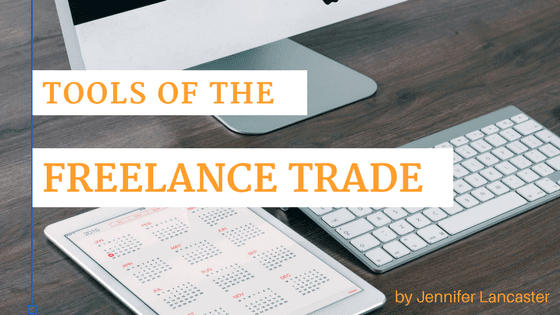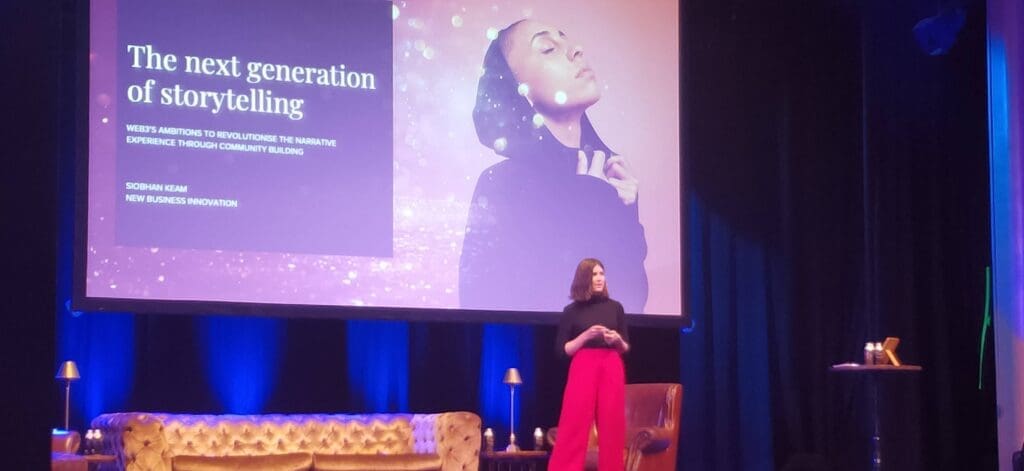Whether you consult or freelance full-time or part-time as I do, certain freelance business tools can help to keep you on track. But which tools (i.e. software)?
After eight years of freelancing, several software applications became my ‘go to’ apps. Now that I’m expanding my business to include author training courses, books, and book support services, it’s even more important to pick the best tools of today.
My Six Best Freelancer Tools and Why
Harvest
Chosen by The Freelance Collective members as the time tracker of choice, I have used Harvest as an invoicing tool and tracker for five years. It offers project time control with inbuilt reminders. In settings, you’ll find and tick “Estimates” – for years I didn’t know this existed, but it’s helpful for turning a quick quote into a deposit invoice.
Price: 1 user, 2 projects free; 1 user multiple projects, US$12.99; $10 extra users.
QuickBooks Online Accounting
The next step, once established, is to set up Accounting and Invoicing with expensing capability. If you don’t really need the time tracking, you can go straight to using something like QuickBooks Self-employed. (Sign up below). This captures your expenses, tracks car mileage, and allows invoices to be sent on the go; great if you’re a travelling consultant.
We all want to make tax time and ATO compliance easier. So if you run a business with billings over $75,000 a year, then consider a full online accounting package, because then your business banking details can be uploaded and expensed without a whole lot of fuss. I expect the mobile app is quite handy as well.
Special offer: The Self-Employed deal is from $6.99 per month; Small Business packages are from $10.50 per month for Simple Start: first six months only.
AMERICANS: Join QuickBooks through ETrade and get a 30% discount for first three months + $5 back! First, sign on to eBates – then, put QuickBooks in search bar. It’s the second one down..
Trello
Before I used task management software, I spent ages searching through the past fortnight of emails for things to action. I often woke up in the night with forgotten tasks!
Now, my VA and I can set up tasks in a board on Trello as ‘lists’, under which you put ‘cards’. These cards can have a checklist, a description, a file attachment, and a deadline. It is good to deadline all of your tasks – even writing a blog post – otherwise, it just doesn’t get done.
You or your VA can move across these cards once they are completed into a List marked “Completed Items”.
Vision6 for Email Marketing
Many freelancers aren’t concerned with automating this. But looking forward, starting a defined email list of subscribers now can only pay dividends later. Keeping in touch with leads is made easier with automated marketing software.
Vision6 provides autoresponders, campaign templates, separate lists, SMS sending, and easy web forms. The design aspect is fairly easy (one click to add text boxes or image placeholder) and similar to MailChimp. If you know your Hex colours, then just pop each into the related box in the design pane. Their support is responsive, in AUS time, and you can search knowledgebase for tutorials.
Google Apps/G Suite – Gmail
Where would I be without my Gmail? Up to my ears in spam, that’s where. I collect all my domain name email addresses here. I regularly add people to ‘contacts’, which white-lists them. Getting in the habit of adding names and numbers as you get them is easier than looking individuals up each time you call. Once added, you just need to remember their first name or company name in the ‘To’ box and it all comes up.
ZOHO CRM
If your prospecting is getting out of hand, I also recommend Zoho CRM. Did you know the name ZOHO is really a play on Small Office Home Office? And that may be why its tools are ideal for you. I use Zoho Social for social media scheduling and Zoho CRM for keeping track of leads, with alerts.
More Google Apps
Another blessing for the forgetful (who, me?) is Google Calendar. Lately I’ve put every single event in there with an edit to ensure I get the notification warning 30 minutes or 1 hour before; allowing plenty of time to get ready. You can invite any person you’re meeting by putting in their email, which means that THEY also won’t be able to forget.
Then there’s Google Docs – great for those proposals on the run, and Google Drive – where I keep my files, all 7,700 of them. I pay $2.49 a month to keep the Drive going (up to 50 GB) but I can access this from any of my smart devices, once set up. When upgrading the Mac, it certainly made it easier to transfer files – although I still had to reinstall the software. The cloud-based Drive allows me to share large documents with clients by clicking their project folder and hitting ‘share with, by email’. (Virtually the same as Dropbox).
Google Suite is $5 per month for the basic plan, to get business address emails served straight to your Gmail. It also includes 30 GB of space in Drive.
Once you’ve been freelancing or consulting for some time, you’ll realise the folly of keeping multiple expense spreadsheets, offline invoices, forests of business cards, and so on… and you’ll never look back once you’ve got these freelancer business tools on the go.








